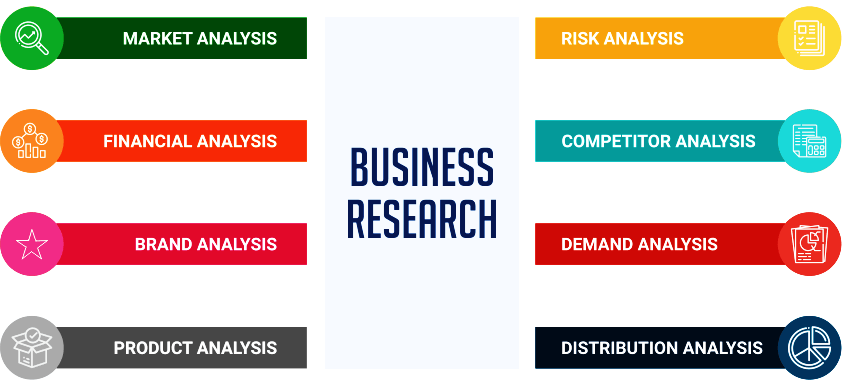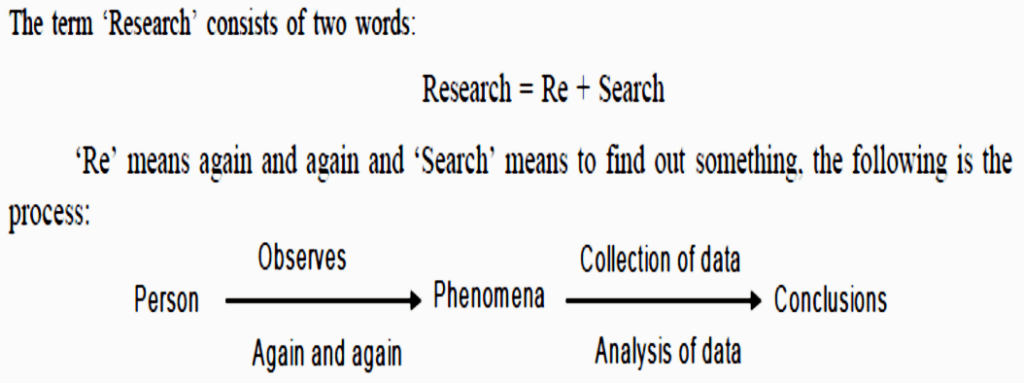Generally, research is an organized and systematic method of finding answers to questions. It is systematic because it is a process broken up into clear steps that lead to conclusions. Research is organized because there is a planned structure or method used to reach a conclusion. Research is only successful if we find answers, whether we like these answers or not. Development research is focused on relevant, useful and important questions. If there are no questions, there can be no research. If the government, business, institutions, labour, organizations and society, in general, are to function efficiently and effectively, the decisions they make must be based on valid and reliable information and thorough analysis. The search for this information is referred to as the research process. There are different key terms in practice where we usually define research as –
*Re-search *Re-examine *Re-investigate *Re-test *Re-enquire.

In other words, the term ‘research’ refers to the systematic method consisting of enunciating the problem, formulating a hypothesis, collecting the facts or data, analyzing the facts and reaching certain conclusions either in the form of solutions towards the concerned problem or in certain generalizations for some theoretical formulation.

How is research used in practice?
As indicated above, the primary purpose of research is to find answers to questions. Research allows us to find the right solutions to key issues in our communities by-
1. Providing facts that will help us to analyze the problem
2. Testing the feasibility and the impact of Programmemes
3. Finding better solutions to the challenges
4. Gaining familiarity with a phenomenon or to achieve new insights
5. Portraying accurately the characteristics of a particular individual, situation or a group
6. Determining the frequency with which something which are associated with something else
7. Testing a hypothesis of a causal relationship between variables
Which research method should I choose?
It depends on your research goal. It depends on what subjects (and who) you want to study. Let’s say you are interested in studying what makes people happy, or why some students are more conscious about recycling on campus. To answer these questions, you need to make a decision about how to collect your data. Most frequently used methods include:
*Observation / Participant Observation
*Surveys
*Interviews
*Focus Groups
*Experiments
*Secondary Data Analysis
*Mixed Methods
One particular method could be better suited to the research goal than others, because the data that we collect from different methods will be different in quality and quantity. For instance, surveys are usually designed to produce relatively short answers, rather than the extensive responses expected in qualitative interviews.

Sampling
It can be explained as a specific principle used to select members of population to be included in the study. It has been rightly noted that “because many populations of interest are too large to work with directly, techniques of statistical sampling have been devised to obtain samples taken from larger populations.”

Review and interpret the information to draw conclusions
Once the researchers have gathered all the data, they can scan the information and interpret it to draw conclusions and make informed decisions and it should review the data and then:
1. Identify the main trends and issues, opportunities and problems observed, and write a sentence about each one.
2. Keep track of the frequency with which each of the main findings appears
3. Make a list of findings from the most common to the least common.
4. Evaluate and perform separately a list of the strengths, weaknesses, opportunities, and threats that have been identified in a SWOT analysis.
5. Preparation of conclusions and recommendations about your research.
Dr. Senthil Kumar, is an Associate Professor of Finance and Business Management in Skyline University Nigeria. He has a PhD. in Business Management from Bharathiar University, India.
You can join the conversation on Facebook @SkylineUniversityNG and on Twitter @SkylineUNigeria

